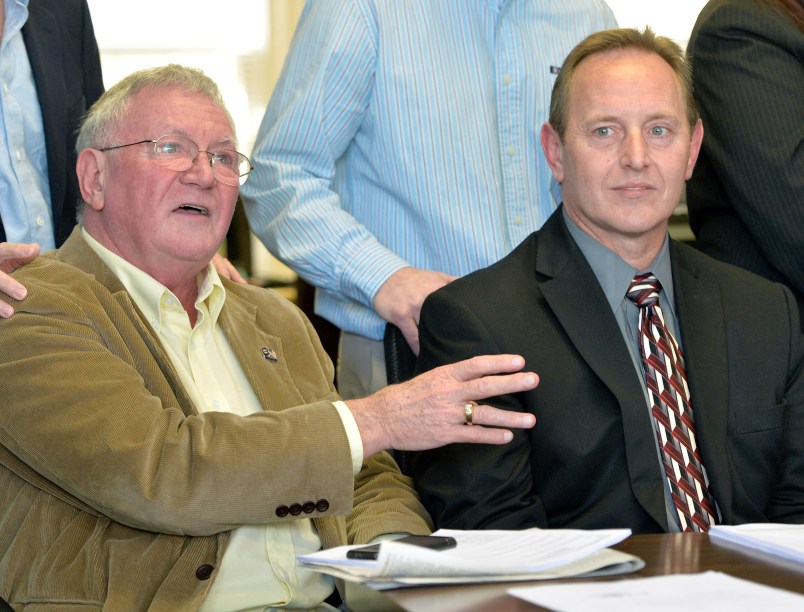Yesterday’s federal court ruling in Kentucky really does show us that not only are bans on same sex marriage on the way out. It’s probably coming much sooner than we think, as TPM Reader JW explains …
On the Kentucky same sex marriage ruling, this truly is the sign that the game is over and it’s just the death throes now. It’s not just because this is a GHWB appointee, but more due to the brevity and clarity of the ruling. While other judges have written long opinions, jumping through various hoops to feel confident in their ruling, Judge Heyburn wastes little time and words getting to his. Opposing legal arguments are quickly disposed of. His ruling has a three part core of (i) Equal Protection under the 14th Amendment, (ii) Loving vs Virginia, and (iii) Justice Kennedy.
The first is to shatter the notion of a state’s right to abridge individual rights. The second as the most obvious application of it, which is one that many “ban” supporters are extremely uncomfortable to face. Heyburn cites it just four times, but each is at a core moment in the opinion to enlighten his thought process. On the last, Heyburn complete wraps the ruling under the framework of Kennedy’s words, to the degree of repeatedly using them with variations ofKentucky placed within them. He also is not at all subtle in daring the Circuit Court to rule opposite direction while pointing that ultimately the Supreme Court and Kennedy will “have the final say” that “will likely complete this judicial journey.”
While this is a “limited” ruling on recognizing out of state marriages, he makes clear how he would have ruled if the broader question of Kentucky’s ban (or any other state’s for that matter) was in front of him for a fuller consideration. More than that, pages 18-23 make clear that he thinks there is only one direction that the Courts and the Country can and will go on this.
There have been a lot of well written, eloquent and at times inspiring rulings on these matters over the years. My favorite remains Judge Walker’s long opinion in Perry vs Schwarzenegger, especially efforts to lay out all of his Findings of Fact. Heyburn’s might be my new “second favorite” due to that very brevity and clarity in which he’s saying, “This matter is obvious at this point, we all know where we’re properly headed under the law, and it’s about time we get it done.”






